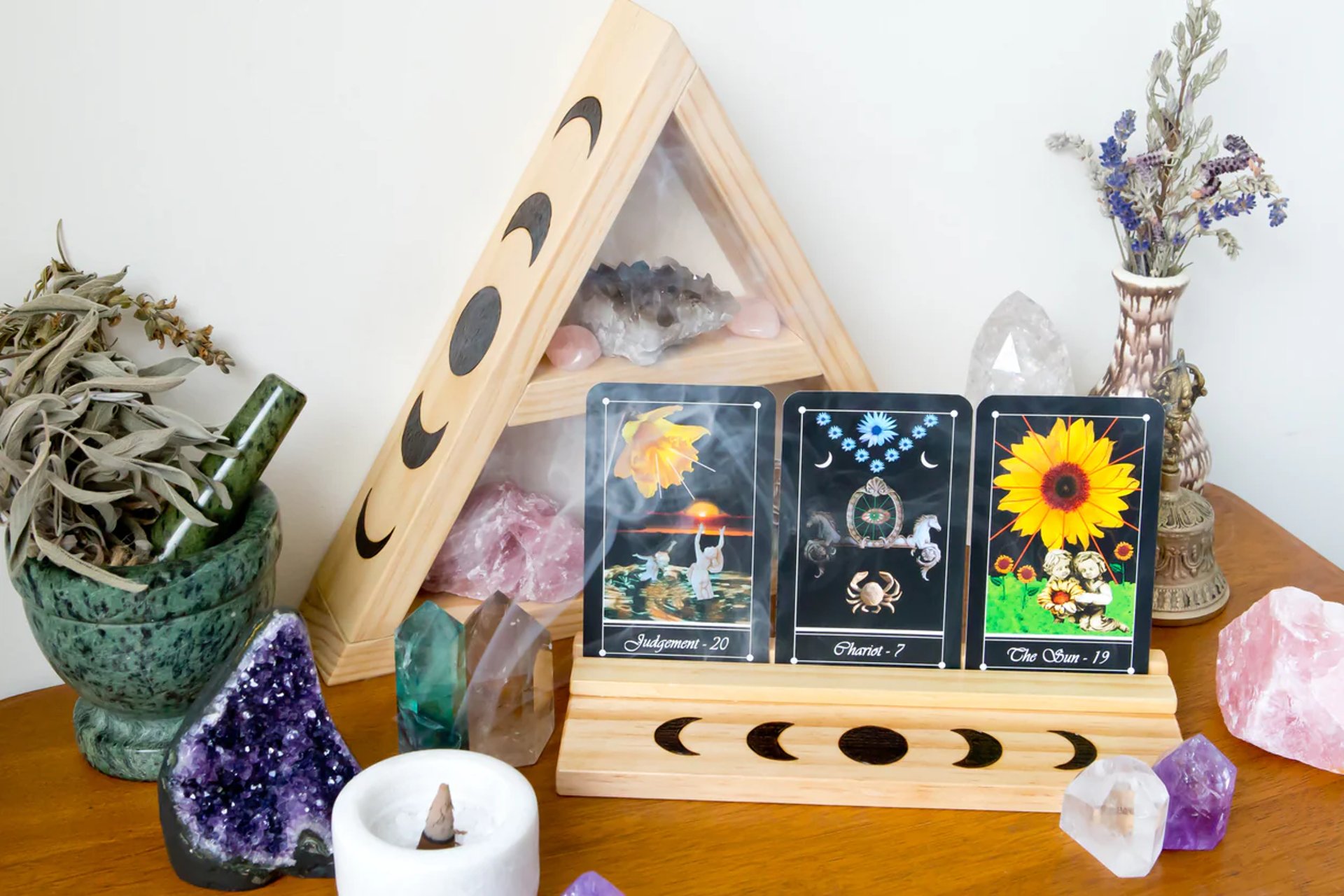Intuitive Entertainment and Society: A Journey Through Cultural Perceptions
Deborah Colleen Rose
3/25/20253 min read


Intuitive entertainment has always held a fascinating place in society, straddling the line between mysticism, performance, and personal insight. Some people embrace it as a fun diversion, while others seek it out for genuine guidance. And then there are the skeptics, quick to dismiss it as nothing more than a parlor trick. But no matter the viewpoint, intuitive entertainment—whether tarot readings, tea leaf interpretations, or palmistry—has persisted across cultures and time, proving that humans have an innate desire to understand themselves and the world beyond what logic alone can explain.
A Global Tapestry of Intuitive Arts
Across different cultures, intuitive practices have taken unique forms, often blending spiritual beliefs, folk traditions, and even mainstream decision-making.
In China, for example, face reading (Mian Xiang) has been used for thousands of years to assess personality traits and even predict one's future. While it may sound mystical to outsiders, in China, this practice has historically influenced everything from matchmaking to hiring decisions.
Similarly, the Vikings used rune casting for guidance in battle and personal affairs. Each rune held symbolic meaning, offering insight into a person’s strengths, challenges, and potential paths. Today, rune readings have experienced a revival, often seen at spiritual fairs or as part of modern self-discovery practices.
In Latin America, curanderismo—a mix of indigenous shamanic traditions and Catholic mysticism—incorporates intuitive arts like egg cleansings (limpias), tarot readings, and dream interpretations. Many people seek out curanderos (folk healers) not just for spiritual guidance but for emotional and psychological support, much like a therapist.
Even in the United States, where intuitive entertainment is often labeled as just that—entertainment—many people still check their horoscopes, visit psychics, or use tarot cards for personal reflection. There’s often a contradiction: someone might laugh off a tarot reading at a party but still make major life decisions based on their zodiac sign.
Entertainment, Belief, or a Bit of Both?
One of the biggest cultural divides in intuitive entertainment is whether it’s seen as a genuine source of insight or just playful fun. In many Western countries, legal disclaimers such as "For entertainment purposes only" are attached to psychic services to avoid legal complications. Meanwhile, in cultures like India, astrology is deeply woven into everyday life, helping determine everything from marriage compatibility to financial decisions—no disclaimer needed.
Even within the same society, attitudes can shift based on context. A psychic reading at a Renaissance fair might be considered mere amusement, while a private tarot session in a quiet room could feel deeply personal. The line between mysticism and performance is often blurry, and perhaps that’s part of the appeal.
The Digital Age: A New Era of Acceptance
Despite historical skepticism, intuitive entertainment is becoming more mainstream. Thanks to the rise of digital platforms, tarot, astrology, and other intuitive practices are more accessible than ever. TikTok, Instagram, and YouTube are filled with readers offering guidance to millions of followers. AI-driven fortune-telling apps in Japan blend ancient traditions with modern technology, demonstrating how even mystical arts can evolve to fit contemporary society.
A particularly interesting shift is the rise of "intuitive coaching," where elements of traditional psychic readings merge with self-improvement techniques. By framing intuitive guidance as a tool for self-reflection rather than fortune-telling, these practices are finding new legitimacy.
Ensuring Credibility in Intuitive Entertainment
Of course, with increased visibility comes the challenge of credibility. The intuitive arts have always attracted both genuine practitioners and frauds, making it difficult for people to know who they can trust. This is why vetting intuitive entertainers is more important than ever.
By creating a certification and verification system, it’s possible to distinguish skilled readers from those simply looking to exploit others. This approach not only protects consumers but also elevates the intuitive entertainment industry, ensuring that those who practice these arts ethically and skillfully are recognized.
Final Thoughts: The Human Desire for Insight
Whether you view intuitive entertainment as a mystical gift, a fun diversion, or something in between, its persistence across cultures proves one thing: humans have always sought guidance beyond the tangible world.
Perhaps that’s why tarot readings, astrology, rune casting, and other intuitive practices continue to thrive. In an unpredictable world, they offer perspective, reflection, and a sense of wonder—and sometimes, that’s exactly what we need.
So, the next time you come across a palm reader at a street fair or a tarot spread on your social feed, ask yourself: is it entertainment, belief, or something deeper? Maybe, just maybe, it’s a little bit of everything.

972-484-3232
© 2024. All rights reserved.


